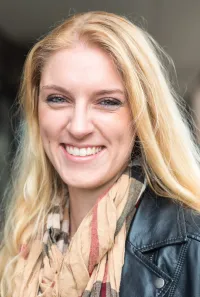Bachelor 2-Fächer
Romanische Philologie Spanisch, Bachelor 2-Fächer
- Welche romanischen Sprachen gibt es, und wo werden sie gesprochen?
- Wie sehen die länderspezifischen Kulturräume aus?
- Welche literarischen Epochen, Werke und Autor*innen sind in der spanischsprachigen Romania prägend?
- Welchen Einfluss hat das Studium der Romania auf meine Berufsmöglichkeiten?
- Wie bereite ich ein Studium im Ausland vor?
Steckbrief |
|
|
Abschluss
|
Bachelor of Arts
|
|
Beginn
|
Winter- und Sommersemester
|
|
Dauer
|
6 Semester
|
|
Unterrichtssprache
|
Deutsch, Spanisch
|
|
Zulassung
|
Zulassungsfrei
|
2-Fächer-Bachelor |
| Dieser Studiengang erfordert ein zweites Fach. |
Andere Studiengänge in diesem Fach
rub



